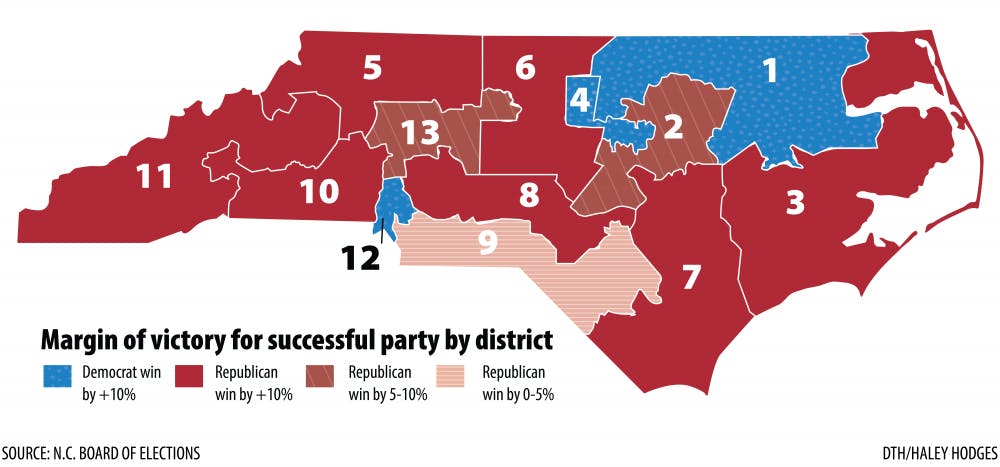The Supreme Court announced on Jan. 4 that it will consider North Carolina's partisan gerrymandering case in what could be a turning point for redistricting cases nationwide.
The case, Common Cause v. Rucho, will heard on the same day as a gerrymandering case from Maryland.
“Lawmakers, both on the Democratic and the Republican side, have almost taken it to an art form of how to draw legislative and congressional districts that favor them when they are in power,” said Bob Phillips, executive director of Common Cause N.C.
Common Cause N.C. has been working to fight gerrymandering legislatively for a while. They changed their tactic to litigation in 2016 when N.C. Republicans were ordered to redraw the congressional maps due to racial discrimination. The new map they produced was self-admittedly drawn for their partisan advantage, with N.C. Rep. David Lewis, R-Harnett, stating in a 2016 redistricting committee meeting that the group would “use political data in drawing this map. It is to gain partisan advantage on the map."
This was the tipping point for Common Cause and produced the Common Cause v. Rucho case, Phillips said.
“Gerrymandering is a problem because it allows politicians to pick their voters rather than voters picking the politicians,” said Todd Barlow, the legislative counsel for N.C. Rep. Darren Jackson, D-39.
Despite winning 50.3 percent of votes statewide, Republican candidates won 10 of 13 seats, including the disputed District 9, indicating how large a role partisan gerrymandering played.
UNC professor Ferrel Guillory, who specializes in politics and media, said gerrymandering is a large problem in North Carolina politics because the state has two competitive parties that have become increasingly polarized. The two-party system has had a strong presence in North Carolina since the 1970s, Guillory said.
In the past, gerrymandering cases have been racially motivated. Barlow said the courts shut down the drawing of district lines in 2011 because they were unfair to Black voters. Other gerrymandering cases dealing with race in the past have ended with new maps being drawn.




